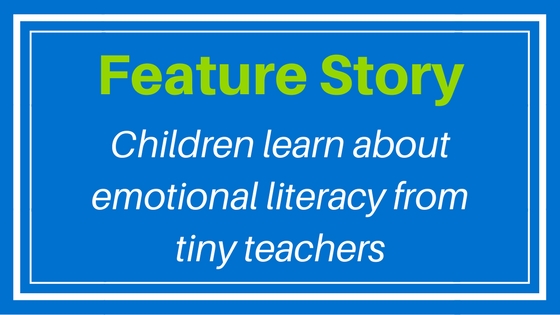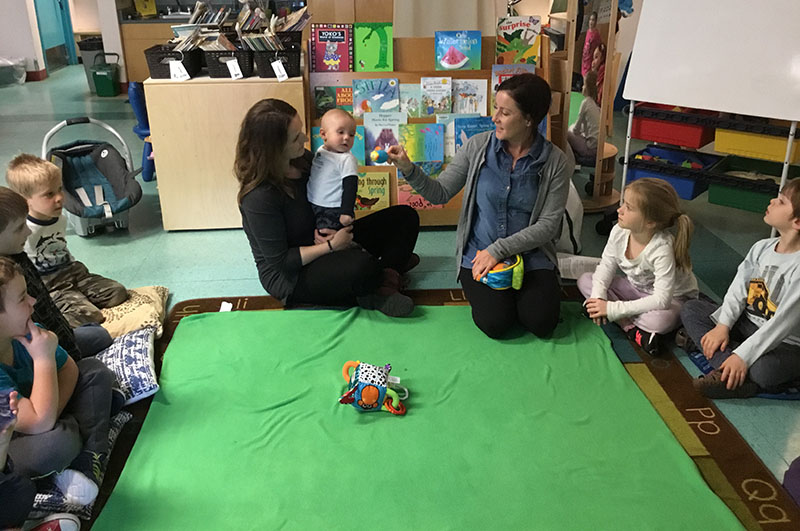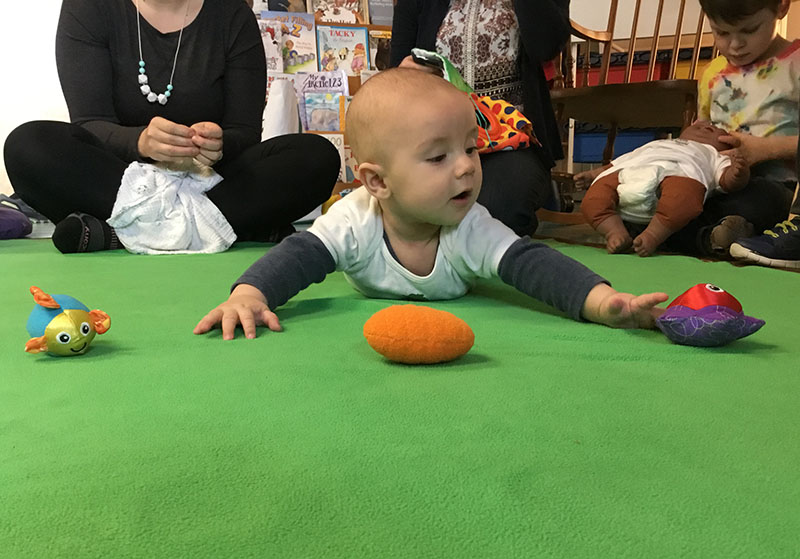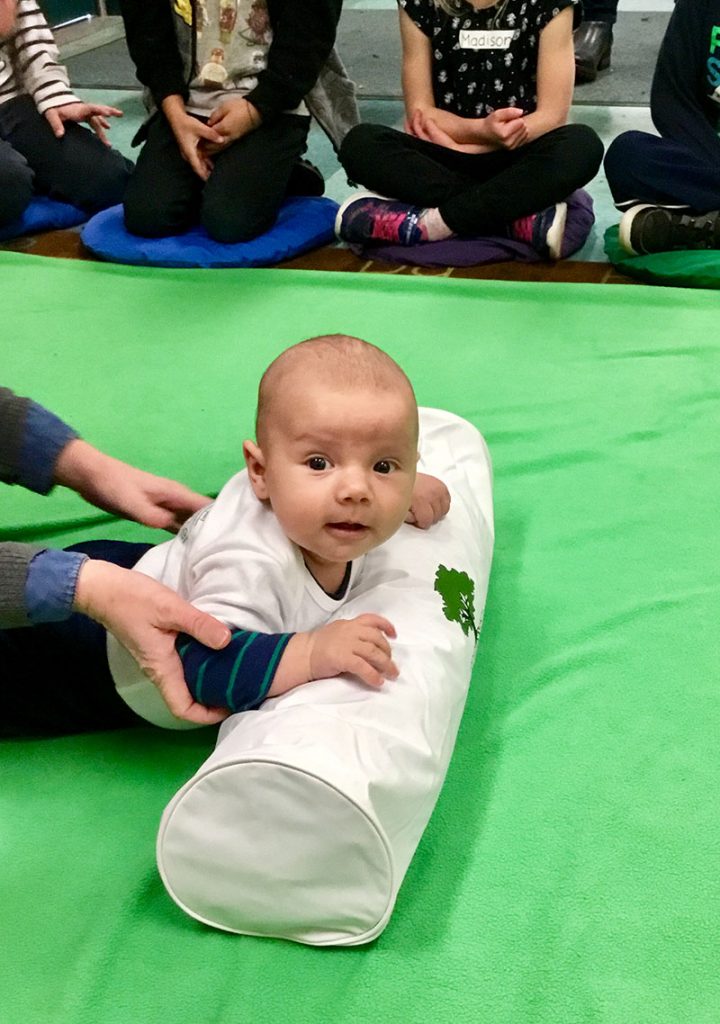
Children learn about emotional literacy from tiny teachers
Children in the Cowichan Valley School District are learning about empathy and understanding from the tiniest of teachers—babies.
That’s right, babies are helping our young students learn and understand social responsibility, one of the core competencies in B.C.’s redesigned curriculum that is being implemented across the province. Social responsibility includes the ability to resolve problems peacefully, empathize with others, and create and maintain healthy relationships, and it’s an incredibly important competency that children need to learn to thrive in today’s world.
So where does this learning all happen? Through a program called Roots of Empathy, which is an evidence-based classroom program that has shown significant effect in reducing levels of aggression and bullying among school children while raising social and emotional competence and increasing empathy. Five of these programs are run in elementary schools right here in the Cowichan Valley School District in order to support the emotional literacy of learners.
In each program, a school adopts their own Roots of Empathy family—an infant and parent—who visit the classroom every three weeks throughout the school year. A trained instructor leads the class through observations about the development of the baby, including the baby’s emotions, which in turn helps the children learn about their own feelings and emotions, and those of others. The instructor also visits before and after each family visit, for a total of 27 classes during the year.
“Increased emotional literacy and proactive social interaction are among the aims in Roots of Empathy classes,” said Nancy Buan, Key Point Person for Roots of Empathy in the Cowichan Valley. “In learning empathy for the baby and others, the students also can experience an increased development in empathy for themselves. When the instructors discuss the baby’s progress with the class, they respond to milestones that haven’t occurred with ‘not yet’. The use of this confident expectation when discussing these milestones can often transfer to the child, who may relate if they themselves might be struggling with their own development in school.”
The program is broken down into four age categories: Kindergarten, Primary (Grades 1-3), Junior (Grades 4-6), and Senior (Grades 7-8). Activities are tailored to the appropriate development of the students participating.
At Bench Elementary school, students in a Kindergarten/Grade 1 class taught by teacher Aliesje Ludvigson have been participating in the Roots of Empathy program this school year with their family Baby Jack and mom Perri. Their Roots of Empathy instructor, Brenda Lee, leads the children through a variety of activities and observations during each visit.
“The students in my class always look forward to the Roots of Empathy lessons, especially the visits with Baby Jack and his mom,” said Ludvigson. “They are excited about the songs and stories, and watching the baby closely as he interacts with his surroundings.”
The goal of Roots of Empathy is greater emotional literacy, which can help create safer and more caring classrooms. According to several studies of the outcome of the program, Roots of Empathy children demonstrated an increase in social and emotional knowledge, a decrease in aggression, and an increase in pro-social behavior (like sharing, helping, and including) among other things—and the results are proving to be lasting.
“They are beginning to be able to read the baby’s body language and make guesses about his needs, and we are able to use that knowledge in every day social scenarios at school,” Ludvigson adds. “My students are learning how to be calm and show excitement in ways that won’t upset or scare the baby, which helps with their own self-regulation.”
While the Roots of Empathy program focuses on competencies like social responsibility, the activities the students participate in also link to classroom curriculum. For example, students help calculate the measurements and weight of the baby, which uses math skills. Children might also use art as a way of exploring their own feelings during or after the visit from their Roots of Empathy family, and song is an integral part of each Roots of Empathy visit.
The program is offered across Canada in both English and French, and its delivered in rural, urban and remote community, including indigenous communities. The program is always looking for more facilitators, so if you love children and are looking for a meaningful volunteer opportunity, consider this role.
To learn more about Roots of Empathy, visit the program website: http://rootsofempathy.org/
-30-
Media Contacts:
Katie McLaughlin
Communications Specialist
Cowichan Valley School District (SD #79)
Phone: 250-748-0321 ext. 308
Email: kmclaughlin@sd79.bc.ca
Cheryl Jackson
Director, Communications and Marketing
Roots of Empathy
Phone: 647-339-0766
Email: cjackson@rootsofempathy.org




